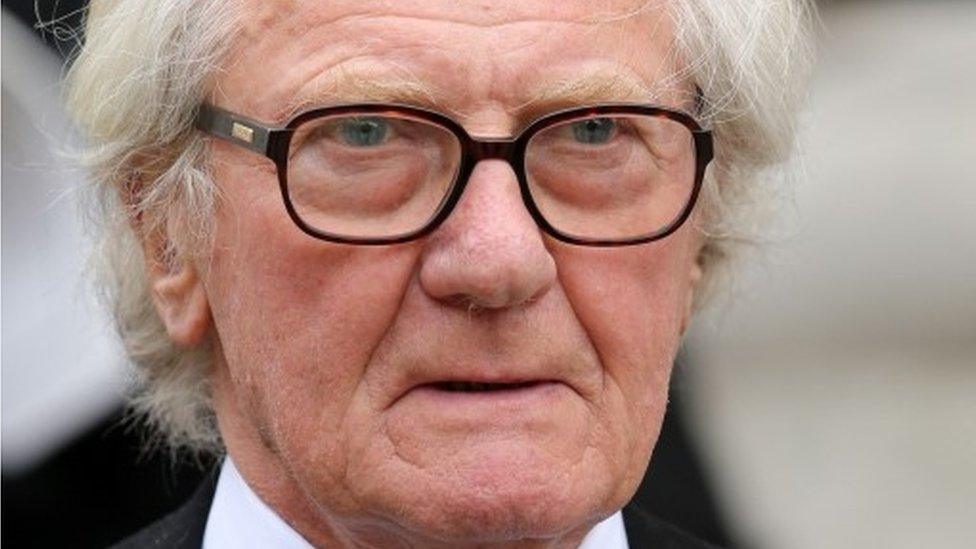EU disastrous for UK, says cabinet minister Chris Grayling
- Published
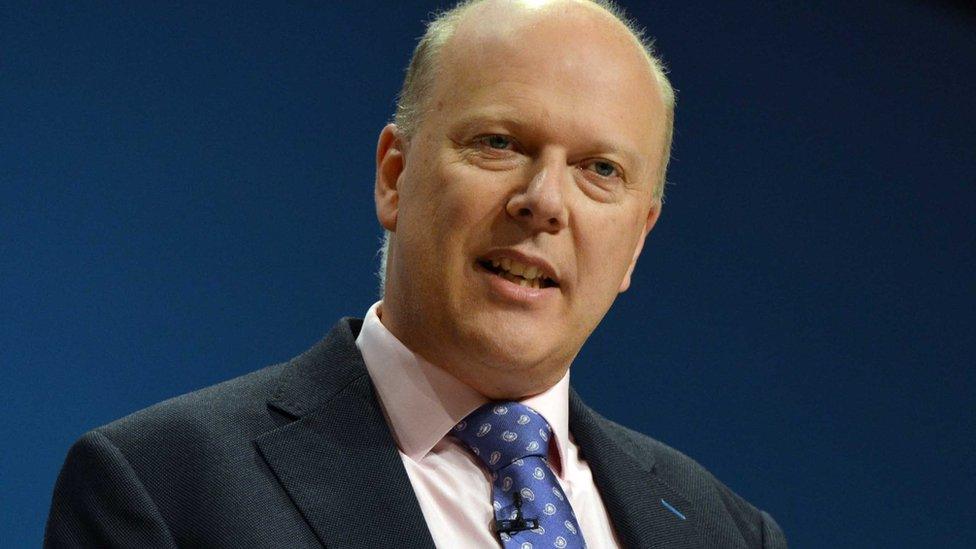
Chris Grayling said there is "intense debate" within the Tories over the EU
Remaining within the European Union under the UK's current membership terms would be "disastrous", Conservative minister Chris Grayling has said.
The EU was heading towards closer integration - a path the UK "will not and should not follow", the leader of the Commons wrote in the Telegraph, external.
It is being seen as the first sign of a minister preparing to campaign to leave the EU in the UK's referendum.
A government source said Downing Street was "very relaxed" about the article.
David Cameron is to allow ministers to campaign for either side of the debate.
However, cabinet ministers will only be able to start campaigning once a new deal has been reached by the prime minister with other EU leaders on the UK's terms of membership.
BBC Political Editor Laura Kuenssberg said Mr Grayling's article "will test the truce Number 10 had hoped would last until the negotiations with the rest of the EU were complete".
"It's clear several other cabinet ministers, perhaps as many as seven, share Mr Grayling's view. Whether they are ready to follow him and go (almost) public is another matter," she added.
Mr Grayling, the leader of the House of Commons and former justice secretary, stopped short of saying Britain should leave the EU in his Telegraph article - but it suggested he was ready to campaign for an exit if he is not satisfied with Mr Cameron's renegotiation deal.
Mr Grayling's Labour shadow Chris Bryant said Mr Grayling was now "leader of the out campaign" but did not have the courage to call for Britain's exit because "he is desperate to keep his place in the cabinet".
He told MPs Mr Grayling's Telegraph article was the "most mealy-mouthed, myth-peddling, facing-both-ways piece of pedestrian journalism that has ever come from his pen".
The Labour MP said the EU referendum was not a "game" about the future of the leadership of the Conservative Party but about jobs and the UK's standing as a nation.
"He says it is disastrous for us to stay in. I think it will be disastrous for us to leave," he told MPs.
Pete Wishart, the SNP's Commons leader, also mocked Mr Grayling as the "leader of the Eurosceptics and putative leader of the Britain out campaign".
Chris Grayling “peddling myths" about EU
Mr Cameron's four key negotiating objectives cover economic governance, competitiveness, immigration and sovereignty.
A referendum must be held before the end of 2017 but Mr Cameron is expected to hold it this year, if he can secure a deal on his reform demands.
Jonathan Faull, who is leading the European Commission's negotiations with the UK, said there was a "good prospect" Mr Cameron would get a deal at the next European Council meeting in February.
He told European Parliament members negotiations had been "difficult" and the Commission would not accept anything that threatened the "four freedoms" - including freedom of movement - the EU was founded on.
On a visit to the Turkish capital Ankara, Foreign Secretary Philip Hammond said the UK and EU leaders were "getting closer" to reaching a deal on the sticking point of curbs to European migrants' benefits, but added "we are not there yet".
He said the UK was trying to "come up with a satisfactory proposal" on welfare, adding that there was "broad agreement" on the other three areas identified by the PM for reform.

The EU referendum
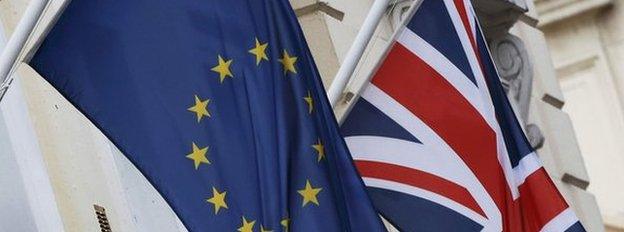
Timeline: What will happen when?
Guide: All you need to know the referendum
Explained: What does Britain want from Europe?
Analysis: Cameron tries to avert slanging match

In his article, Mr Grayling said the UK was at "a crucial crossroads" and "cannot be left in a position where we have no ability to defend our national interest" within the EU.
"I am someone who believes that simply staying in the EU with our current terms of membership unchanged would be disastrous for Britain," he added.
"That's why I have always believed that it is imperative that (Mr Cameron's) renegotiation takes place and delivers as much potential change as possible.
"It is in the interests of all Eurosceptics and of our country," he added.

Analysis, by BBC political correspondent Ross Hawkins
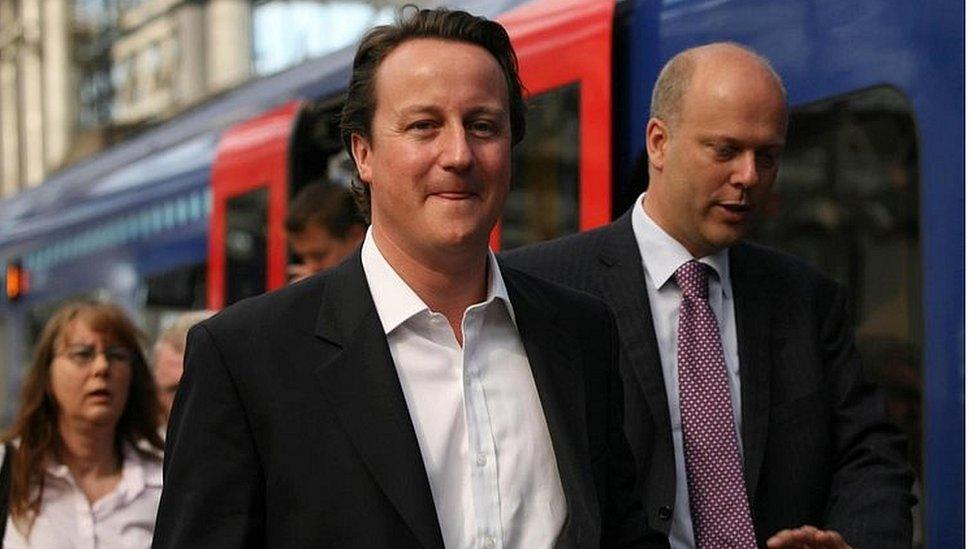
Chris Grayling, pictured (right) here in 2006, has been in David Cameron's shadow cabinet and cabinet throughout his time as leader
Westminster is not reeling at the shock revelation Chris Grayling is a Eurosceptic. It was hardly a secret. But his declaration in print still matters.
It proves cabinet ministers can start a good row, even when they're supposed to be agreeing. Just listen to the former minister Damian Green accuse him of "peddling myths". It all but confirms that there will be at least one cabinet member campaigning to leave the EU.
But it's hardly a disaster for Number 10. Some senior Eurosceptics felt only pro-EU cabinet voices were being heard, and blamed bias in Downing Street. For them, this piece will help correct the balance.
What really matters though is what happens next. When are better-known political beasts - Theresa May and Boris Johnson - forced to show their hand? And will a bitter row between Tory tribes begin rather sooner than the PM expected?

Mr Cameron hopes to secure a new deal for the UK in Brussels next month.
A number of cabinet ministers are thought to favour an out vote in a referendum, with Mr Cameron expected to campaign for the UK to remain in the EU.
Another minister who is seen as a Eurosceptic, Northern Ireland Secretary Theresa Villiers, told the BBC she "really supports" the PM's renegotiation efforts.
Mr Cameron has said he rules nothing out if he does not get what he wants from the talks.
However, former Foreign Secretary Lord Hague said he believed it was unlikely Mr Cameron would recommend a vote to sever ties with Brussels.
- Published14 January 2016
- Published14 January 2016
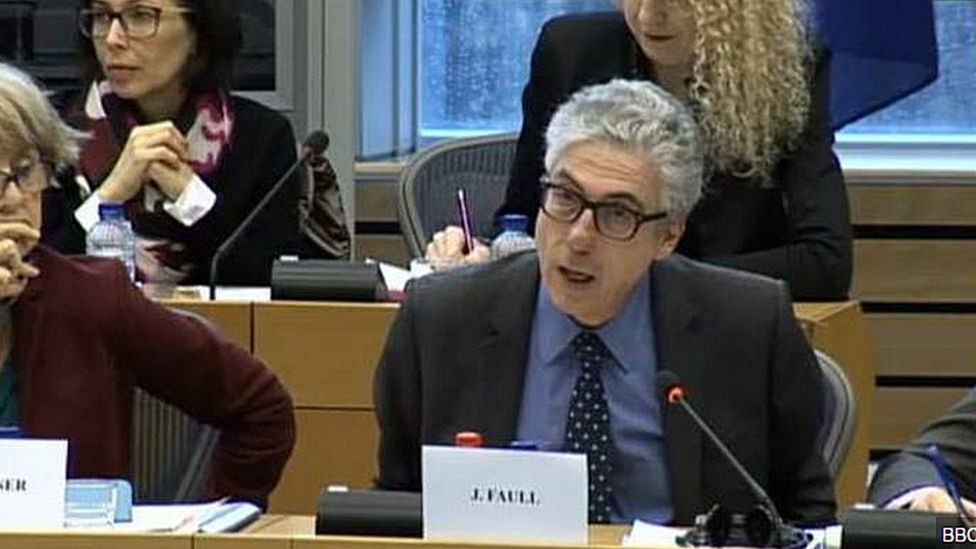
- Published11 January 2016
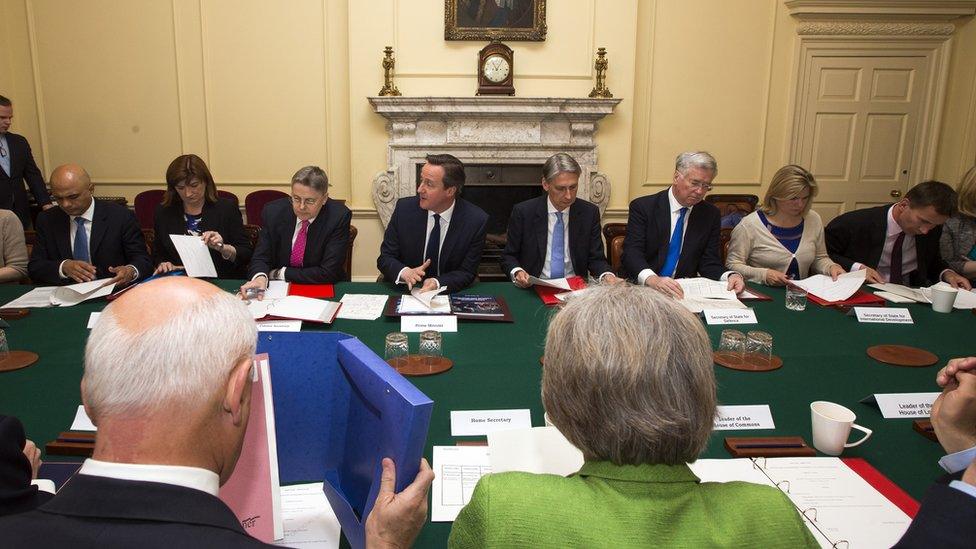
- Published10 January 2016
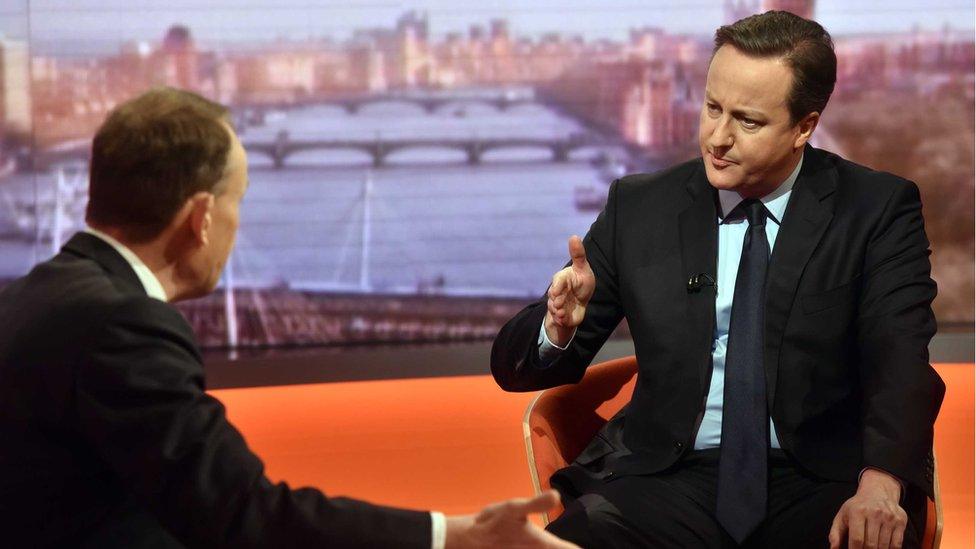
- Published5 January 2016
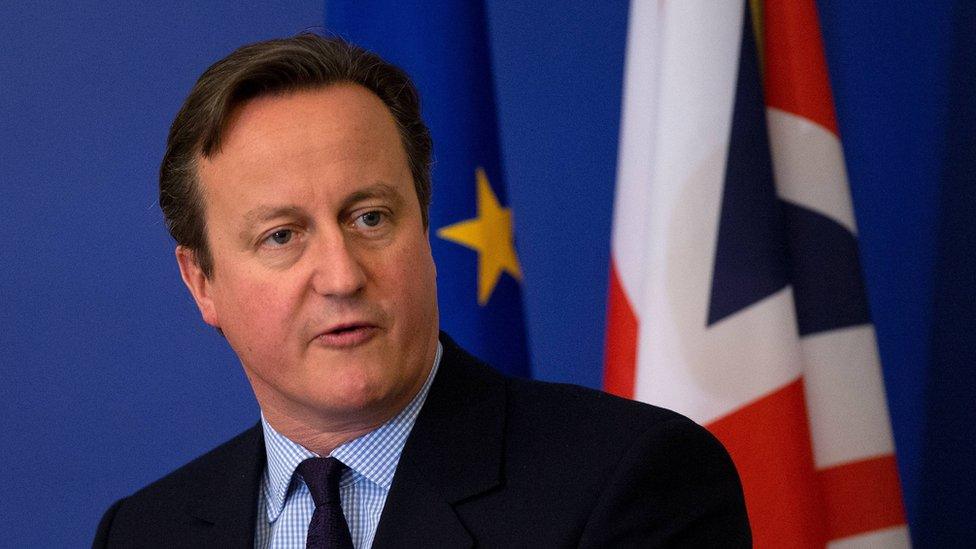
- Published23 December 2015
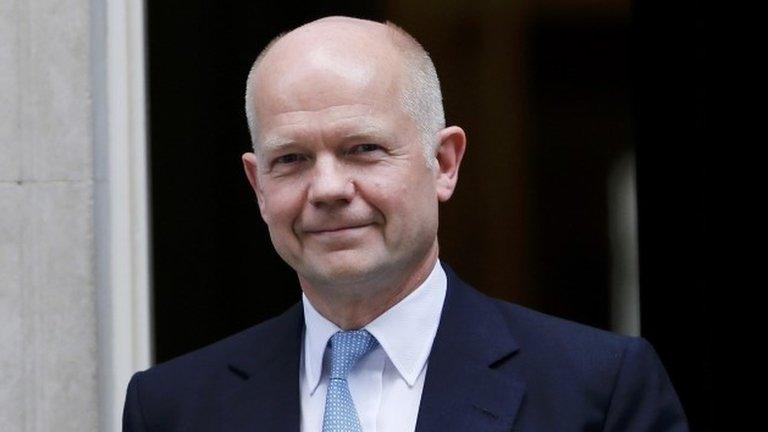
- Published21 December 2015
